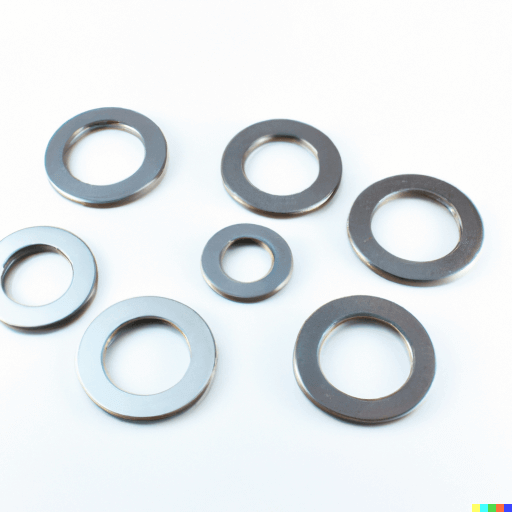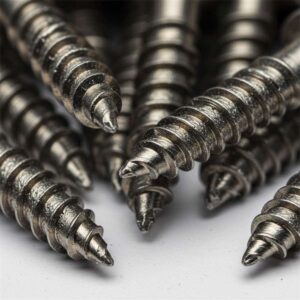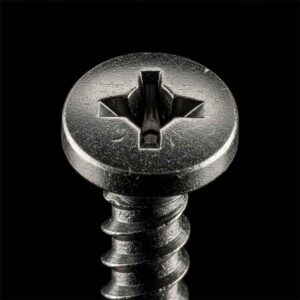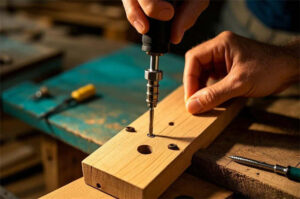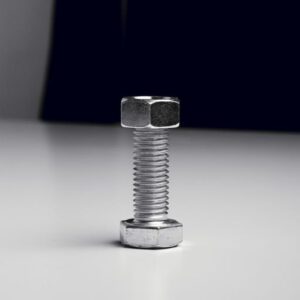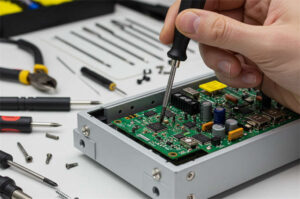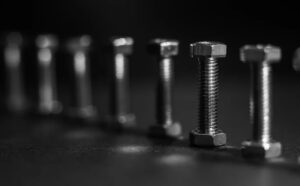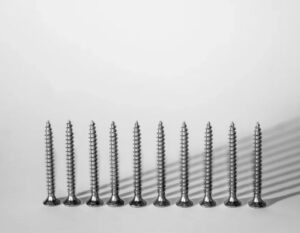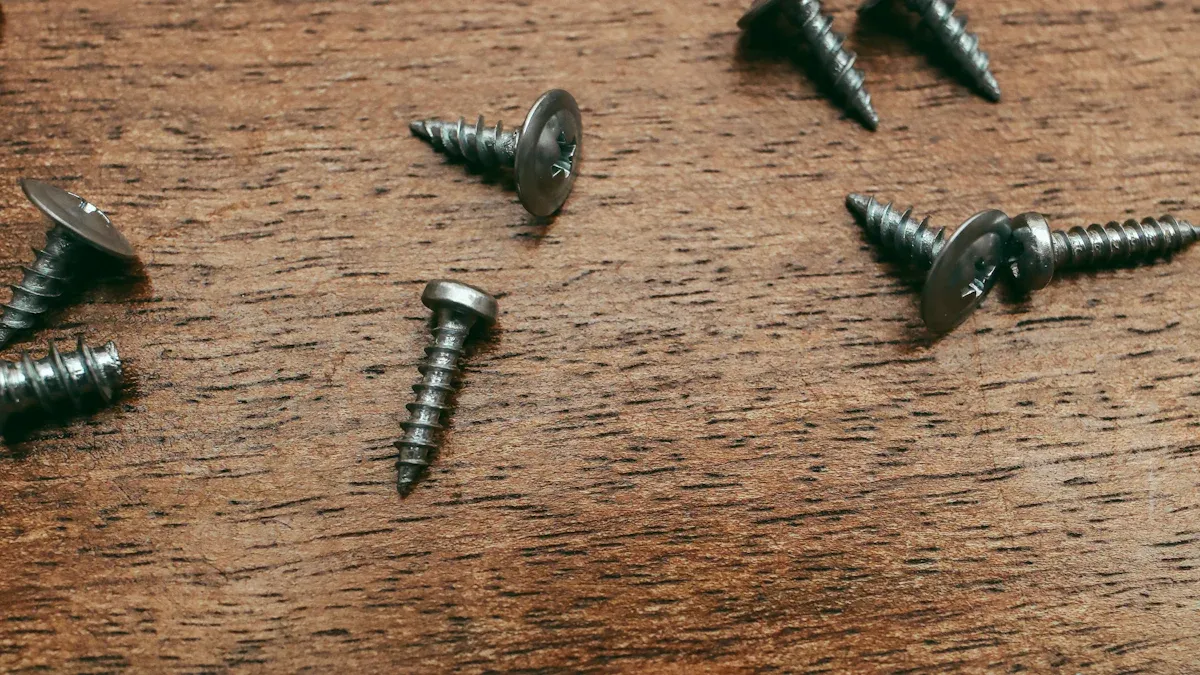
You might wonder if you really need washers with screws. The answer depends on what you are building, the materials you use, and the results you want. In some cases, like medical repairs or projects that need strong connections, washers can help keep everything tight and safe. Studies show washers improve how screws hold things together, especially when you want to avoid damage or slipping. Think about what do washers do for screws in your situation. Always match your choice to your project’s needs.
Principales conclusiones
- Washers are important for soft materials. They help protect surfaces from screws. Washers stop damage from happening.
- Use washers where things shake a lot. Washers keep screws tight. They lower the chance of screws coming loose.
- Do not use washers for hard materials. Screws can stay in place without washers. This works well when things do not move much.
- Pick the right washer type for your job. Flat washers spread out the force. Lock washers stop screws from getting loose.
- Make sure washer size and material fit your project. This helps keep things safe and strong.
Quick Answer: Should You Use Washers?
You might ask if washers are needed for your project. It depends on what you build and the materials you use. Sometimes, washers are very important. Other times, you do not need them.
Washers Are Essential in Some Cases
Washers help in many projects. They stop damage, keep things tight, and make your work last longer. Here is a table that shows when washers matter most:
| Guión | Function Description |
|---|---|
| Distribución de la carga | Arandelas spread force from screws y proteger las superficies. |
| Resistencia de vibracion | Some washers keep screws tight when things shake or move. |
| Insulation | Washers can block electricity from passing between parts. |
| Automotive Applications | Cars and trucks use washers to keep parts safe and secure. |
| Aerospace Applications | Planes need washers to handle stress and keep parts in place. |
| Maquinaria industrial | Machines use washers for stability and strong performance. |
Use washers with soft materials like wood or plastic. Washers help seal joints to stop leaks. If your project moves or shakes a lot, washers keep screws tight. Sometimes, washers stop screws from poking through, making things safer.
Tip: Washers made of rubber or plastic soak up shakes and keep things tight.
When Screws Alone Are Enough
You do not always need washers. If you use hard materials like metal, you can skip them. Screws with flanges do not need washers. Projects with little stress or movement often do not need washers. For crafts or decorations, screws alone work well. Always check your materials and how much force your project will face before you choose.
What Do Washers Do for Screws?
When you ask what do washers do for screws, you find that they play several important roles. Washers help your projects last longer and stay safe. You can use them to make sure your screws work better and protect your materials.
Distribute Load Evenly
One of the main answers to what do washers do for screws is that they spread out the force from the screw head. When you tighten a screw, all the pressure goes to a small spot. Washers help by spreading this pressure over a bigger area. This process is called load distribution. If you use washers, you lower the chance of the screw sinking into the material or causing cracks.
Engineers use washers to make sure the force from screws spreads out evenly. This helps keep the joint strong and safe, even when you use it in heavy-duty projects.
A study found that washers help balance the load across the screw threads. This means your screws hold better, and your project stays together longer. In high-stress jobs, like building with metal or using strong machines, washers can reduce stress spikes by up to 70%. You can see how much washers help in this table:
| Tipo de lavadora | Maximum Load (kN) | Minimum Load (kN) | Spike Stress Reduction (%) | Working Range Improvement (%) |
|---|---|---|---|---|
| Fe19 | 22.2 | 4.5 | 70 | 69 |
| Polyurethane Washer | 22.2 | 4.5 | 70 | 93 |
Protect Surfaces from Damage
Another answer to what do washers do for screws is that they protect your materials. When you use screws alone, the head can dig into soft surfaces like wood or plastic. Washers act like a shield between the screw and the material. They stop the screw from making dents or cracks.
If you work with soft or delicate materials, you should always use washers. They help keep your project looking good and working well. Washers also help stop moisture and chemicals from reaching the screw and the surface. This means your project will last longer, even if you use it outside or in wet places.
Tip: If you want your project to stay strong and look neat, always use washers with screws on soft materials.
Prevent Loosening and Friction
You might wonder what do washers do for screws when things shake or move. Washers help prevent looseness by keeping the screw tight, even when your project faces vibration. They also lower friction between the screw and the surface, which helps you tighten the screw more easily and keeps it from wearing out.
- Washers help prevent looseness in joints, which keeps your project safe.
- They spread out the force and make the surface under the screw even.
- Using washers made from different materials, like copper or aluminum, can make your project even stronger.
Algunos types of washers, like helical spring washers, do not always work as well as you might think. Tests show that these washers can flatten out and sometimes even make screws loosen faster. For most projects, flat washers give you the best results.
When you use washers, you also help your screws last longer. They reduce stress around the screw joint, which means your project can handle more pressure before breaking. If you want to know what do washers do for screws, remember that they keep everything tight, safe, and working for a long time.
When to Use Washers
Knowing when to use washers helps you build stronger and safer projects. You should look at your materials, the environment, and how much movement your project will face. Here are the main situations where you need washers.
Soft or Delicate Materials
You need washers when you work with soft or thin materials. These include wood, plastic, drywall, and sheet metal. Washers spread out the force from the screw, so the material does not crack or bend. You also protect the surface from dents and scratches.
| Tipo de lavadora | Application Description |
|---|---|
| Fender Washers | Great for soft or thin materials. They spread the load over a bigger area to prevent damage. |
| Nylon Washers | Non-conductive and non-corrosive. Use them for delicate surfaces and electrical jobs. |
- Washers are necessary to distribute load.
- They protect softer materials from damage.
If you want your project to last and look neat, always use washers with screws in soft materials.
High Vibration or Movement
You should use washers in places where things shake or move a lot. Machines, vehicles, and HVAC systems often face vibration. Washers help keep screws tight and stop them from coming loose.
- Rubber washers absorb vibrations because they stretch and act like dampers.
- They lower noise, making machines quieter.
- These washers protect sensitive parts by stopping vibration from spreading.
Some washers, like spring washers and split lock washers, flex to handle tension changes. Toothed lock washers have teeth that stop twisting. Wedge-locking washers get tighter when things try to loosen them. Belleville washers keep steady tension, which helps when heat or pressure changes.
Tip: Use special washers for high-vibration jobs to keep everything secure.
Large Holes or Irregular Surfaces
You need washers when you work with oversized holes or uneven surfaces. Flat washers help spread the load and make sure the screw fits tightly. They also stop the screw head from sinking into the material.
- Flat washers work best for big holes. They spread the force and keep the joint strong.
- Washers help fix uneven surfaces, so the screw sits flat.
- They prevent dishing, which happens when the edge is not supported.
- Washers also block moisture, lowering the risk of rust.
If you see gaps or rough spots, add washers to make your connection safe.
Outdoor or Moisture-Prone Projects
You should use washers for outdoor jobs or places with lots of moisture. Washers help seal the joint and keep water out. This stops rust and keeps your project strong.
- Washers block moisture from getting into the screw hole.
- They lower the chance of corrosion.
- Nylon and rubber washers work well outside because they do not rust.
Note: When you build something for the outdoors, washers help your project last longer.
You now know when to use washers for the best results. Look at your materials, the environment, and how much movement your project will face. Washers make your work safer, stronger, and more reliable.
When Washers Are Not Needed
You do not always need washers for every project. Sometimes, skipping them makes your work easier and just as strong. Knowing when not to use washers helps you save time and materials.
Hard, Stable Materials
If you work with hard and stable materials, you can often skip washers. Metals like steel or thick aluminum hold screws tightly. These materials do not dent or crack easily. You get a strong connection without extra parts. For example, when you attach a steel bracket to a metal frame, the screw head will not sink in. You can trust the joint to stay tight.
Tip: Always check the material’s strength before you decide when not to use washers.
Screws with Built-In Flanges
Some screws come with built-in flanges under the head. These flanges act like washers. They spread the force and protect the surface. You do not need extra washers with these screws. Here is a table that shows how screws with built-in flanges compare to traditional screws with washers:
| Característica | Screws with Built-in Flanges | Traditional Screws with Washers |
|---|---|---|
| Distribución de la carga | Evenly spreads weight | May shift or compress unevenly |
| Stress Points | Reduces stress points | Higher risk of stress points |
| Solicitud | Precision and strength needed | Uso general |
You get even load distribution and fewer stress points with flanged screws. These screws work well when you need precision and strength.
Low-Stress or Decorative Uses
You can skip washers for projects that do not face much stress. If you build a picture frame or hang a light shelf, the load stays low. Decorative projects often use screws only for looks. Washers add no real benefit in these cases. You keep your project simple and neat.
- Use washers only when you need extra support.
- For crafts or light-duty jobs, screws alone work fine.
Knowing when not to use washers helps you make smart choices. You avoid extra steps and keep your work efficient.
Alternatives to Washers
Sometimes, you may not want to use washers with screws. There are other ways to keep your screws tight and your project safe.
Sujetadores especiales
Specialty fasteners can hold things together very well. They are good when things might shake or move. Each type is made for a certain job. Some fasteners have special parts that grab the surface or lock the screw. Here are some lock washers and what they do:
| Type of Lock Washer | Descripción |
|---|---|
| Helical Washer | Has twisted rings that grab the surface and keep the fastener tight. |
| Internal Tooth Lock Washer | Has teeth inside that hold the bolt head and lower shock and noise. |
| External Tooth Lock Washer | Has teeth outside, good for big screw heads and stops turning. |
These fasteners help stop screws from getting loose. They also make joints stronger and protect your materials. In machines or places with lots of shaking or heat, these fasteners keep things tight. They also spread out the force and stop damage. Picking the right fastener helps your project last longer.
Note: Use specialty fasteners when you need extra strength or face tough jobs.
Thread-Locking Compounds
Thread-locking compounds are another way to keep screws tight. These are special liquids or gels you put on the threads before you tighten the screw. The compound fills the spaces and hardens, locking the screw.
- Lock washers are easy to use and cheap. They work for some shaking but not for very strong vibration.
- Thread lockers make a strong hold that works for heavy shaking. They are good for important or tough jobs.
You can use thread-locking compounds when you need screws to stay tight for a long time. They help stop screws from coming loose in machines or cars. If you want a strong hold, thread-locking compounds are a good choice.
Tip: Always read and follow the directions for thread-locking products.
Now you know there are other ways to keep screws tight. You can use specialty fasteners or thread-locking compounds. These choices help your projects stay safe and strong, even without washers.
Choosing the Right Washer
Flat vs. Lock Washers
You have to choose the right washer for your job. Flat washers and lock washers do not do the same thing. Flat washers help spread out the force and keep surfaces safe. Lock washers stop screws from coming loose when things shake. Check this table to see how they are different:
| Factor | Arandelas Planas | Arandelas de seguridad |
|---|---|---|
| Uso principal | Load distribution and surface protection | Preventing loosening in the presence of vibrations |
| Application Example | General fastening applications | Applications with potential vibrations (e.g., railway) |
| Beneficio | Protects material from damage | Ensures stability and security of fasteners |
Pick flat washers if you want to protect your material and spread out the force. Use lock washers if your project will shake or move a lot.
- Flat washers are best for spreading out pressure.
- Lock washers are needed to keep screws from getting loose.
Knowing what each washer does helps you pick the right one.
Material and Size Tips
The washer’s material and size change how well your screws work. You should pick a washer that fits your job and where you use it. Here is a table that shows what different washer materials can do:
| Washer Material | Propiedades clave | Environmental Suitability |
|---|---|---|
| Goma | Flexible, good for sealing uneven surfaces | Good for dynamic environments, may distort under strong compression |
| Metal | Strong, resists corrosion, prevents leaks | Best for high-strength jobs and reducing vibration |
| El plastico | Affordable, good for electrical isolation | Works for electronics, not for heavy loads |
You also need to think about how well the washer fights rust.
| Tipo de material | Resistencia a la corrosión |
|---|---|
| Acero carbono | Good strength but can rust |
| Acero inoxidable | Excellent resistance to rust |
| Aluminum Alloy | Lightweight, resists corrosion |
| Copper and Alloys | Conducts electricity, corrosion resistance varies |
| El plastico | Resists corrosion, lower strength |
| Paper | Cheap, not durable |
Pick stainless steel or aluminum if you build something outside. Use rubber or plastic if you need to seal or stop electricity.
Washer size is important too. The hole in the washer should fit the screw. The outside size and thickness help spread out the force. In the US, SAE and USS rules help you pick the right washer size. Using the right size keeps your project strong and safe.
Tip: Always check the washer’s material and size before you start. This helps you stop damage and keeps your project safe.
Washers can protect surfaces and spread out force. They help screws stay tight and strong. Use washers with soft materials or if things shake a lot. Use them outside to stop damage from weather. You do not need washers for hard materials or easy jobs. Pick a washer that fits your screw and project.
Tip: Look at your materials and where you work before you choose. This helps you avoid mistakes and makes your project safer and last longer.
Preguntas más frecuentes
Do you always need washers with screws?
You do not always need washers. Use washers for soft materials, outdoor projects, or places with vibration. Skip washers for hard materials or decorative jobs.
Tip: Check your project’s needs before you decide.
What happens if you skip washers?
You might see cracks, dents, or loose screws if you skip washers in the wrong place. Washers help protect surfaces and keep screws tight.
| Situation | Possible Problem |
|---|---|
| Soft material | Cracking, denting |
| Vibración | Loosening |
Can you use any washer with any screw?
You should match the washer size and material to your screw and project. Large washers work for big holes. Rubber washers seal out moisture.
- Pick stainless steel for outdoor use.
- Use nylon for electrical jobs.
Are lock washers better than flat washers?
Lock washers stop screws from loosening in vibration. Flat washers spread force and protect surfaces. Choose lock washers for machines. Use flat washers for soft materials.
Note: Pick the washer that fits your project’s needs.
